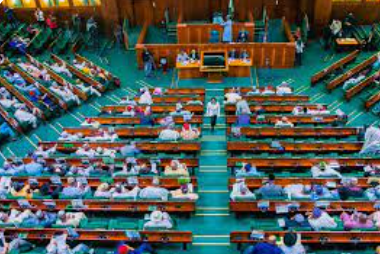The House of Representatives Committees on Finance and Public Assets have called for a review of the Ministry of Finance Incorporated Act, 2024, to align with global financial management practices and regulatory expectations.
The committees made the call on Tuesday at a public hearing to review and reform Nigeria’s financial legal framework.
The hearing dwelt on a “Bill for an Act to Repeal the Ministry of Finance Incorporated Act, Cap M229, Laws of the Federation of Nigeria, and Enact the Ministry of Finance Incorporated (Establishment, Etc.) Act.”
In his speech at the event, Speaker of the House of Representatives, Tajudeen Abbas, described the event as a crucial legislative effort to examine and update the nation’s financial statutes to align with current global financial management practices and regulatory expectations.
Established in 1959 and last reviewed in 2004, MOFI was designed to allow the Federal Government to partake in commercial ventures. However, Abbas expressed concern over the agency’s consistent failure to meet its statutory and ethical responsibilities.
He stressed the need to overhaul the agency to ensure it upholds transparency and accountability in the management of public investments.
“This public hearing provides a platform for professionals, stakeholders, and the public to contribute meaningfully to a legislative process aimed at repealing outdated laws and crafting a modern legal framework that reflects today’s economic realities,” Abbas said.
He emphasised the role of public input in shaping effective legislation, adding, “Your contributions will guide us in developing a law that truly serves the interest of the nation.”
Declaring the session open, Abbas asserted that the deliberations would have lasting implications for Nigeria’s economic governance and overall financial integrity.
The Chairman, Committee on Finance, James Faleke, noted that the existing MOFI Act mandates the agency to manage the Federal Government’s investments, assets, and financial commitments, including properties, rights-of-way, and loan recoveries.
The Lagos lawmaker faulted the unofficial transfer of public assets to individuals through executive directives without due legal process, stressing that such practices violate the agency’s core mandate and highlight institutional weaknesses.
He said, “The proposed legal amendments would align MOFI’s operations with contemporary economic challenges and provide the necessary statutory backing to revamp the agency in line with international standards.”
Faleke further stated that the hearing was intended to gather insights from MOFI, sector experts, and the general public to enhance the agency’s performance and maximise revenue generation to support Nigeria’s long-term fiscal health.














